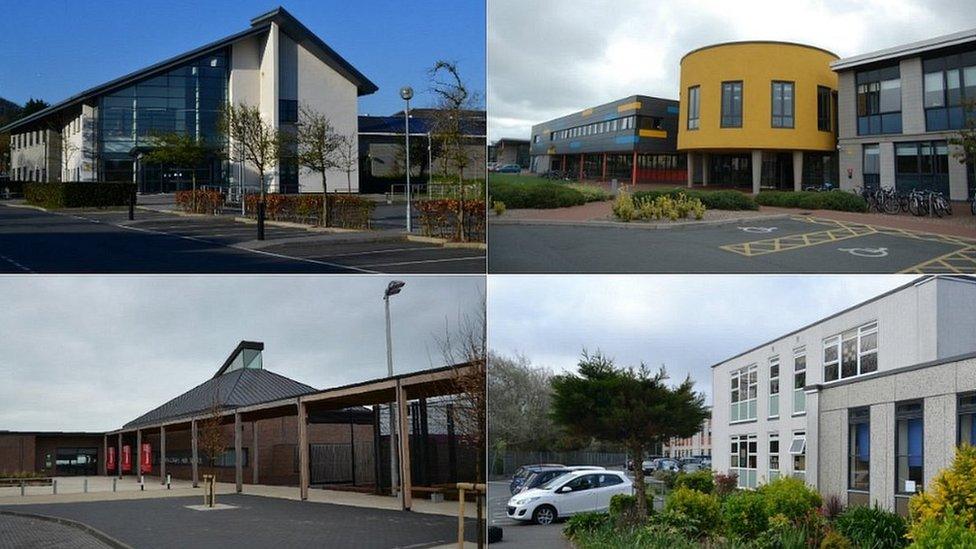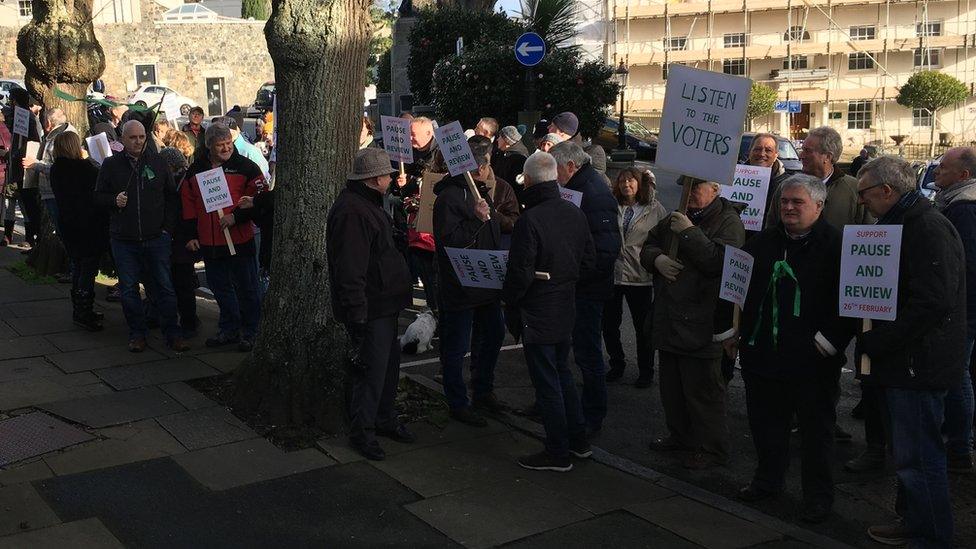Guernsey secondary education reform proposals revealed
- Published

Previously agreed proposals to reform secondary schools have been paused since March 2020
The two models of secondary education preferred by Guernsey's education committee have been revealed.
Both are variations of three schools with a sixth-form centre elsewhere, the committee for Education Sport and Culture (ESC) said.
Deputy Andrea Dudley-Owen said the models had been chosen after "extensive consultation" with teachers.
However, the committee warned work remains to be completed before it finalises recommendations.
A policy letter is due to be submitted for consideration by the States on 10 May, it confirmed.
Plans for secondary education reform were put on hold last March, when the States voted to "pause and review" a previously agreed model of one school spread across two sites.
In February, the committee also proposed to change the terms of the ongoing review and overturn all existing resolutions proposed by the States.
'Laying building blocks'
The main difference between the two models being considered is whether a third school is at Les Varendes or La Mare de Carteret sites, the proposal outlines.
The current St Sampson's and Les Beaucamps schools will be used in both options and the sixth form will be located in a post-16 campus with the Guernsey Institute.
The committee also said the "guiding principles" it used to arrive at these two models say they must:
Provide "greater equity" for post-16 education and training and not leave the sixth form split across more than one site
Be "pragmatic" and deliver "improvements in equity"
Reflect the prevailing "economic opportunities and limitations of the current financial climate"
Be deliverable in an "achievable timeframe", mindful of "disruption to the school community" and "easily understood by all stakeholders"
ESC president Andrea Dudley-Owen said their plans were based on "extensive consultation" with staff last year, who said a separate sixth form on one site was one of their "top priorities".
She said: "We also considered the current economic situation, our future recovery and ensuring we were laying the building blocks for an education system which is fit for the 21st Century.
"We also believe the committee's direction aligns with the electorate's wishes given the strong indication from the ballot box in October, when many voted for candidates whose manifestos expressly stated a preference for a three-school model."

Follow BBC Guernsey on Twitter, external and Facebook, external. Send your story ideas to channel.islands@bbc.co.uk, external.
Related topics
- Published8 February 2021

- Published3 March 2020
